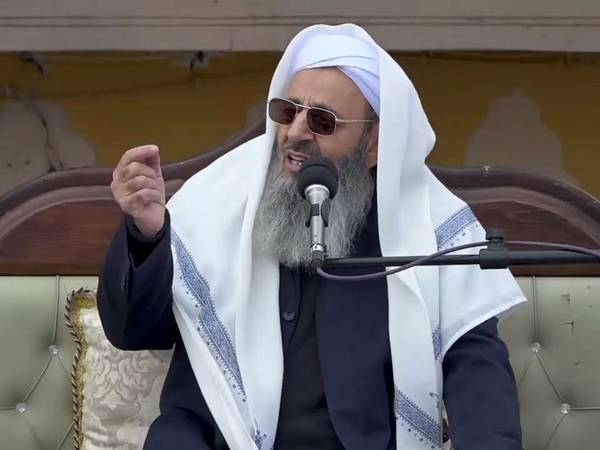Iran's leading Sunni cleric Mowlavi Abdolhamid has welcomed the government’s appointment of a Sunni ethnic Balochi as governor of the Sunni-majority Sistan and Baluchestan Province.
Speaking to a group of citizens in Chabahar, one of the major cities of the Sunni-majority province, Abdolhamid briefly referred to the appointment of Mansour Bijar and said he was pleased with the appointment.
Before he was appointed governor, Bijar, a 50-year-old civil engineer, served as a development affairs coordination deputy to the governor of the province.
Bijar is the third from a religious and ethnic group to be appointed as governor by Pezeshkian’s government.
His appointment came after the appointment of a Sunni Kurd as the governor of Kordestan Province and an ethnic Arab as governor of the oil-rich Khuzestan Province.
Abdolhamid who wields much influence among the large Sunni, Balochi population of Sistan and Baluchestan and other Sunni-populated regions has repeatedly criticized the government for political, social, and religious discrimination against Sunnis.
Referring to the new governor’s appointment at the cabinet meeting Wednesday, Pezeshkian expressed hope that the appointment would help remedy the impoverished province’s problems while underlining that his government does not discriminate between the Persian-speaking and other ethnicities including Arabs, Kurds, and the Balochi.
During his campaign debates, Pezeshkian repeatedly criticized the unwritten ban on the appointment of Sunnis and women to higher government management positions but presumably under pressure from the Shia religious establishment, he proposed neither Sunnis nor women as candidates for ministerial positions in his cabinet.
Pundits say Shia sources of emulation (Grand Ayatollahs) who have always opposed the appointment of Sunnis to higher government positions are likely to be disappointed with Pezeshkian’s recent appointments.
Pezeshkian visited Qom Thursday to meet with several influential grand ayatollahs some of whom are known for their strong opposition to giving positions of high responsibility to Sunnis that they believe gives them supremacy over Shias. Conservative grand ayatollahs also strongly oppose women’s appointment as ministers.
No mention was made of discussion of the appointments in the official reports of these meetings.
In September the majority hardliners and ultra-hardliners of the Parliament also blocked the resignation of a Sunni Kurdish lawmaker, set to join Pezeshkian’s cabinet as a deputy. The Parliament’s hard stance sparked speculation over whether Pezeshkian would fight to keep the Sunni lawmaker in his cabinet or relent to hardliners’ pressure to omit them.
In a Friday sermon in Zahedan, the capital of Sistan-Baluchestan, Abdolhamid criticized the Parliament’s objection to Hosseinzadeh’s resignation and barring him from entering Pezeshkian’s cabinet although resignation of other lawmakers to join the cabinet had always been accepted before.
Sunnis are also impeded from running for the presidency. In June, the unelected 12-member Guardian Council, responsible for vetting candidates, blocked Jalal Jalalizadeh, a Sunni former representative of Sanandaj in the Iranian parliament, from running in the snap presidential elections.
Over the years, Sistan and Baluchestan has witnessed several major terrorist attacks by Jundullah and Jaish al-Adl, two closely related insurgent Balochi groups that advocate for an independent Balochistan that encompasses Baloch populations on both sides of the Iran-Pakistan border.
Last week, Jaish al-Adl, a group known for its history of ambushes, bombings, and other violent operations resulting in the deaths of both civilians and security personnel, took responsibility for the killing of ten border guards in Taftan Country of Sistan and Baluchestan.
